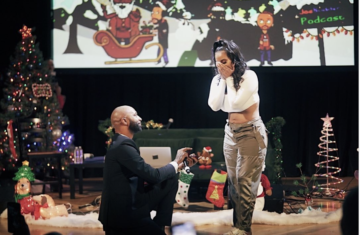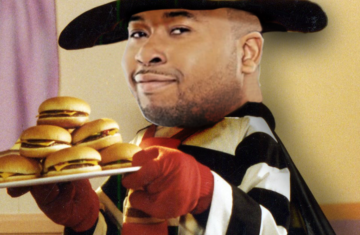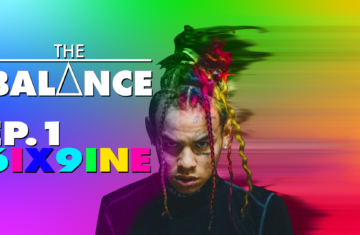Roman Reigns relinquishes the Title to battle his returning leukemia
- Genres:News Worthy
On Monday night, Roman Reigns, WWE Universal Champion and face of the company, laid down the belt and walked out of the ring. Unlike just about every other time I will type out those words, this was not part of the act. “My real name is Joe,” he said, “and I’ve been living with leukemia for 11 years.” And just like that, everything changed.
Reigns — or Joe Anoa’i, his real name — isn’t Universal Champion anymore. He laid the belt in the middle of the ring after announcing to the world that his leukemia, which he had battled 11 years ago, had returned and he had to relinquish the belt. It was a minor note in the grand scheme of things — a scripted title in a fake sport seems insignificant in the face of real human sickness and potential death. And yet it mattered, because Reigns’s entire persona exists in relationship to that title belt. Since his advent as a singles star four years ago, the tension between his position in the WWE hierarchy and his perceived worthiness for that role has swallowed not just his story line, but often the entirety of WWE. He was the top hero, the heir to Hogan and Austin and Cena, but he was booed cruelly in almost every televised appearance he made.
The boos weren’t for Reigns, really — he had just become symbolic of WWE’s myopia. When he finally won the title from Brock Lesnar at SummerSlam, it felt like the culmination of years of ill-conceived inevitability. WWE reunited the Shield — the megapopular trio of Reigns, Dean Ambrose, and Seth Rollins — seemingly to try to secure Roman a positive reaction from the fans. On Monday, Reigns finally got that reaction: “Thank you, Roman!” boomed through the arena. It was as much an apology from the fans as a vote of moral support. After his speech, Anoa’i was met atop the entrance ramp by Rollins and Ambrose, and they embraced, and they put their fists together in traditional Shield fashion. Ambrose was red-faced; Rollins was blubbering. That wasn’t part of the act either.
Well, OK, it was kind of part of the act. It was the opening segment on WWE Raw, after all. The tension between the real and the fake in pro wrestling has been stretched to the point where real-life catastrophe is inherently part of the action. Fans know too much about the real-life goings-on for it not to be. Sure, Kevin Owens’s knee surgery was subsumed into the story line and played off as an in-ring injury. But when Finn Bálor tore his labrum midmatch at SummerSlam 2016, it required formal acknowledgement and a hasty rewrite; even though he won, he was forced to relinquish the Universal Title the next night, and the injury became a minor part of his mythos upon his return. When Daniel Bryan was forced out of action — and forced to give up the World Heavyweight Championship — due largely to concussions in 2014, it was depicted as an evil front office stripping the hero of his gold. His eventual retirement two years later set the model for Anoa’i’s speech on Monday: robbed of story line, of bombast, a person reckoning with their own mortality in a spotlight in the middle of an arena full of people. Bryan miraculously returned from retirementearlier this year, and his fight to return has almost made his dire medical situation feel like a prolonged angle.
Authentic as it may be, Reigns’s departure is now part of the story too. “Roman Reigns fights against leukemia,” the WWE wrote in its press release. “I want to make one thing clear,” Reigns said in the ring. “By no means is this a retirement speech, because after I’m done whupping leukemia’s ass, I’m coming back home.” When and if Reigns comes back, he’ll be the conquering champion that WWE always saw him as. I don’t mean that to sound snide at all: He’s long deserved the role he was cast into, but WWE’s insistence upon him hurt his stock. You could see the realization washing over the crowd during his speech: They had been so caught up in the meta story line of Roman’s ascent that they were wilfully blind to the fact that they were witnessing greatness. Now life has wrenched the story line out of WWE’s hands. It changes everything about the entirety of Reigns’s career so far, and it changes everything about his future — in or out of the ring.
The way that Anoa’i insisted that he wasn’t retiring stood in accidental relief to the tag-team megamatch at Crown Jewel, WWE’s misbegotten supershow in Saudi Arabia next month featuring the Undertaker and Kane versus Triple H and Shawn Michaels. Michaels has been retired for eight years and seemed to take the vow more seriously than most of his contemporaries, but he’s getting back in the ring at the behest — and thanks to the bankroll — of Saudi Crown Prince Mohammed bin Salman. (Michaels, for his part, can barely speak the R-word, as if by not formally saying he’s unretired he won’t sully his legacy.) All four of the men in that match — as well as Trish Stratus and Lita, two more legends of the Attitude Era, who are competing at WWE Evolution this weekend — speak to the meaninglessness of time and mortality in the wrestling world. As long as there are fans chanting “One more match” and a promoter with pockets deep enough, no career is ever kaput.
Of course, the wrestling world has seen more than its share of tragedy, but we fantasy-book the future in spite of it. Imagining Reigns’s eventual return is a coping mechanism, but it’s also all we know. It’s hard to look at the persistence of the Undertaker or the return of Daniel Bryan and not feel like we’ve willed them into existence. But the pain and the stakes are real.
“We come out here every Monday night to entertain,” lead commentator Michael Cole said after Reigns’s exit. “That’s what we all do. We live in this alternate reality sometimes, and I think we all forget that we’re real people. And the superstars in the locker room are real people, and reality came up here and bit us tonight.” (My 10-year-old watched Reigns’s speech in shock. I asked him afterward if he was OK, and he said, “His name is Joe?”)
Most of the rest of Raw had a similar heartrending dissonance. Paul Heyman, the villainous representative of Brock Lesnar, came out and prefaced his dastardly monologue with a touching homily about the wrestling life. “What you witness tonight is sacrifice,” he said. “The show must go on, and so it does.”
And so it did: In the main event, Rollins and Ambrose went up against their nemeses Dolph Ziggler and Drew McIntyre for the latter duo’s tag titles. When Reigns’s buddies pulled out the feel-good win, it seemed a fitting tribute to their fallen partner, a nice moment at the end of a hard night.
And then Ambrose grabbed Rollins and drove his head into the mat.
Ambrose sat on his knees, twitching, coming to grips with what he had just done. He proceeded to, well, beat the shit out of Rollins. It was more than just a good wrestler turning bad — it was a man, overwhelmed by sadness and emotion, lashing out at his friend because he was there. In a world of silly side-switching, that was somehow a deeply human reaction. The crowd was visibly disturbed.
This was obviously part of the act. They’d been teasing an Ambrose turn for a few weeks, but it didn’t seem imminent and certainly not fodder for tonight. That seemed to be what the crowd was saying: “Not tonight. Any night but tonight.” As the cameras kept turning to brokenhearted audience members, it felt almost voyeuristic. To a one, they were frozen in anger, confused because their emotions were raw and their expectations had been destroyed. It was something I’ve never seen before up close — what a major heel turn in the ’70s must have felt like. It was uncomfortable and masterful.
You imagine that Joe Anoa’i, second-generation star and wrestling purist, got a kick out of the moment. It was a perfect tribute to Roman Reigns. The crowd was mad, but they weren’t mad at Ambrose — they were mad at WWE for putting them through that on that night. For Reigns, that tension wasn’t always positive — “It didn’t matter if you cheered me; it didn’t matter if you booed me,” he’d said earlier in the night, “you always reacted to me … and for that I have to say thank you.” But on Monday, all of our expectations were shattered. In turning Ambrose, WWE gave the crowd what they didn’t want, and it was effective.
In just the way that he has made every other wrestler matter over the past four years, Reigns made the emotional journey of Ambrose’s turn possible, just as his illness brought our love and respect for him into focus. Here’s hoping he’ll be back soon to keep the story going.







